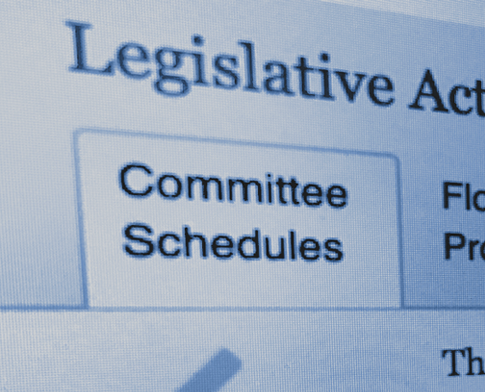Tax Update (December 13)
Biden-Harris Transition
This week, President-elect Biden announced the following key health nominees, appointees, and advisers:
General Lloyd Austin, Secretary of Defense
- Retired four-star General with more than 40 years of military service
Xavier Becerra, Secretary of Health and Human Services
- Current Attorney General of California
Tom Vilsack, Secretary of Agriculture
- Confirmed by unanimous consent in the Senate in 2009 to serve as Secretary of Agriculture – served from 2009-2017
Marcia Fudge, Secretary of Housing and Urban Development
- Current representative for the 11th Congressional District of Ohio
Denis McDonough, Secretary of Veterans Affairs
- Served as White House Chief of Staff, Deputy National Security Advisor, and Chief of Staff of the National Security Council during the Obama-Biden administration
Katherine Tai, United States Trade Representative
- Served as the chief lawyer for the House Ways and Means Committee
Susan Rice, Director of the Domestic Policy Council
- Served as National Security Advisor from 2013-2017
- Served as U.S. Ambassador to the United Nations from 2009-2013
Dr. Rochelle Walensky, Director of the Centers for Disease Control and Prevention (CDC)
- Chief of the Division of Infectious Diseases at Massachusetts General Hospital and Professor of Medicine at Harvard Medical School
Dr. Vivek Murthy, Surgeon General
Dr. Marcella Nunez-Smith, COVID-19 Equity Task Force Chair
Dr. Anthony Fauci, Chief Medical Adviser to the President on COVID-19 and Director of the National Institute of Allergy and Infectious Diseases
Jeff Zients, Coordinator of the COVID-19 Response and Counselor to the President
Natalie Quillian, Deputy Coordinator of the COVID-19 Response
To view a full list of the Biden-Harris nominees, appointees, and White House staff, click here.
Congress
Appropriations/COVID19 Stimulus
On Wednesday (Dec. 9), the House passed a one-week stopgap spending bill, moving the government funding deadline from Friday (Dec. 11) to Friday (Dec. 18). Lawmakers have funded the government by a continuing resolution (CR) since September. On Friday (Dec. 11), the Senate passed the CR.
If they do not reach an agreement on a spending package by Dec. 18, a shutdown could be avoided by passing another CR that would extend until early next year.
Congressional leaders and appropriators are negotiating both a $1.4 trillion,12-bill spending package as well as COVID-19 stimulus. However, committee leaders in both chambers have begun negotiations on noncontroversial aspects of the relief package, including small business funding.
On Wednesday (Dec. 9), a group of bipartisan lawmakers released the framework for a COVID-19 relief bill. The legislation costs about $908 billion and would provide $160 billion for state, local, and tribal governments, extend unemployment programs by 16 weeks, and allocate $300 billion for the Paycheck Protection Program (PPP). Notably, the package includes language that would allow business expenses paid for by PPP loans to be tax deductible. Lawmakers have fought with the Treasury Department over its decision to not allow the deductibility of the PPP loans, claiming it was Congress’ intent to allow these deductions.
Democrats have said negotiations on noncontroversial provisions of COVID-19 relief are in concert with the bipartisan package, however, top Republicans remain skeptical the bipartisan proposal can address controversial items including state and local aid and liability protections.[1]
To view a summary of the Bipartisan Emergency COVID Relief Act, click here.
Extenders
On Wednesday (Dec. 9), House Ways and Means Chairman Richard Neal (D-MA) said he is pushing for the longest extension possible and allocation increase of the new markets tax credit (NMTC). Neal highlighted community redevelopment efforts in his district due to the tax break and the benefit of the credit to help the economy recover from the COVID-19 pandemic. The new markets tax credit is set to expire at the end of the year, along with around 30 other extenders.[2]
Final Regulations
On Wednesday (Dec. 9), the Internal Revenue Service (IRS) and Treasury Department released final regulations that address the elimination of the deduction for expenses related to certain transportation and commuting benefits provided by employers under Section 274 of the Internal Revenue Code. This effort is part of a push to complete regulations related to the 2017 Tax Cuts and Jobs Act (TCJA) before the Biden administration takes control.[3]
To view the final regulations, click here.
Remote Worker Tax
On Tuesday (Dec. 8), Sen. John Thune (R-SD) said Senate Minority Leader Chuck Schumer (D-NY) is opposing the effort to address remote worker tax issues as part of an additional COVID-19 relief package.
There has been an effort by some lawmakers to establish a rule that allows taxpayers to file in the same place as they did before the COVID-19 pandemic. It would be unusual for Congress to pass legislation to direct states on taxation individuals, however, the COVID-19 pandemic has made this issue more prevalent. New York state has some of the most aggressive laws on taxes for temporary workers.[4]
OECD
Deputy Director for Taxes at the Organization for Economic Cooperation and Development (OECD) Grace Perez-Navarro signaled confidence this week that a global agreement on digital services taxes (DST) can be reached in 2021.
The OECD has been trying to reach a deal for years on where multinational companies get taxed, what they get taxed on, and a minimum level of tax.
G-20 leaders told the OECD to conclude negotiations by the middle of next year, which Perez-Navarro called “realistic,” however she also acknowledged the challenges the group would face in reaching a deal.
Perez-Navarro also said the OECD predicts more multilateral engagement with the U.S. under President-elect Joe Biden’s administration.[5] However, while the Biden team may be less reliant on tariffs, no real shift in the U.S. position is expected – there is bipartisan opposition in Congress to DSTs.
SALT Cap
On Monday (Dec. 7), Rep. Tom Suozzi (D-NY) said he plans to list New York political donors who made contributions to candidates that support the $10,000 cap on state and local tax (SALT) deductions. Suozzi said the report will be released in the spring and be based off of donations made in the first quarter of 2021.
“You give money to Mitch McConnell, you give money to Lindsey Graham, you give money to Washington politicians that are undermining New York, you are donating to fund our demise in New York,” Suozzi said.
The lawmaker also said he will ask every member in Congress to pledge to repeal the SALT cap and that the donor list will focus on those who made contributions of more than $1,000.[6]
IRS
Qualified Opportunity Funds
On Wednesday (Dec. 9), the IRS announced it has started sending letters to taxpayers that may need to take additional actions related to Qualified Opportunity Funds (QOF). Individuals who attached a Form 8996 to their return may receive a letter to inform them that if they intend to self-certify as a QOF they may need to take additional action to meet the annual self-certification requirement.
To view the IRS press release, click here.
Final 1040 Form
This week, the IRS released a final 1040 form for the next tax-filing season. The form is longer than the previous one, and asks if the flier has ever owned cryptocurrency. The IRS has not yet announced when the 2020 tax filing season will start.
To view the final 1040 form, click here.
References
[1] Caygle, Heather & Everett Burgess. “Hill leaders press forward on Covid relief talks.” Politico Pro, 11 Dec. 2020.
[2] Lorenzo, Aaron. “Ways and Means Chair Neal working to enhance community redevelopment tax break.” 9 Dec. 2020.
[3] Faler, Brian. “Treasury issues final rules on limits on deductions of transportation benefits.” Politico Pro, 9 Dec. 2020.
[4] Faler, Brian. “Thune says Schumer opposing bid to address remote worker tax problems.” Politico Pro, 8 Dec. 2020.
[5] Lorenzo, Aaron. “OECD leader optimistic over digital services tax deal next year.” Politico Pro, 8 Dec. 2020.
[6] Lorenzo, Aaron. “Suozzi to name names of big New York political donors to SALT cap supporters.” 7 Dec. 2020.
HOUSE.GOV
The Week Ahead
For the main events of the next week and more, go straight to the key events on the house.gov website.
SENATE.GOV
The Week Ahead
For the main events of the next week and more, go straight to the key events on the senate.gov website.


